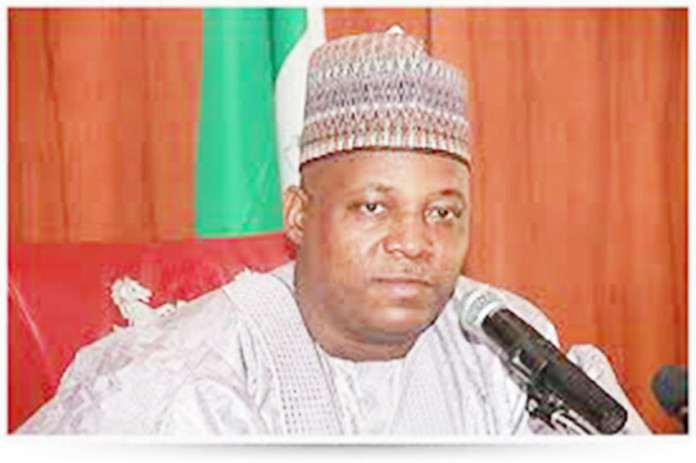
The annual rains are approaching in North East Nigeria. But with farmers having fled from the Boko Haram conflict and their fields fallow, it’s feared another planting season will come and go.
“If this crop season is missed, the food situation will worsen,” warned Mohammed Rijiya, President of the Borno State Chamber of Commerce.
“It is not sustainable to continue feeding the displaced in camps. They need to go back home and cultivate,” he told AFP.
At least 17,000 people have been killed since the conflict began in 2009, most of them in Borno State. More than 2.6 million others have been forced to flee their homes into displaced persons camps.
Fears of raids or the aftermath of deadly attacks have left towns and villages deserted, forcing many in the largely agricultural region into camps for the internally displaced or host communities.
With harvests missed, stores of grains looted, livestock stolen and roads blocked, food has been in increasingly short supply in rural Borno and even the towns and cities where many have fled.
The World Food Programme last month said 5.6 million people in the Lake Chad Basin of northeast Nigeria, northern Cameroon, southeastern Niger and southwestern Chad were “food insecure”.
A total of $32 million (29 million euros) was “urgently required to meet the most immediate needs in the four countries over the next six months”, the WFP said.
Last year, nearly 6,500 children were found to be severely malnourished in IDP camps in Borno, according to health officials.
Malnutrition was a factor in the deaths of 459 from preventable childhood illness.
With the Islamists now on the run after a sustained military counter-offensive over the last year, business leaders believe trade should be at the forefront of the region’s revival.
“The government has to ensure the resumption of security in the areas affected by the violence and the resumption of economic activities there for normal life to return,” said Rijiya.
Currently, all 280 rural markets across Borno have been shut because of the violence, with the government and military worried about Boko Haram’s use of local trading centres to raise money.
Last week, the Borno authorities shut down four cattle markets following security reports they were being used by the militants to sell stolen livestock.
Fears of raids or the aftermath of deadly attacks have left towns and villages deserted.
That and the closure of the main cattle market in the state capital, Maiduguri, has led to shortage of meat, provoking a public outcry.
Even Boko Haram itself has not been immune from the shortages, with reports that dozens of starving fighters have surrendered and were forced into neighbouring countries in the search for food.
There are fears that reopening the markets — a lifeline for local traders and people — could turn on the militants’ supply routes again.
But Rijiya said: “These rural markets drive the local economy of Borno because they provide patronage to our traders. As long as these markets remain closed there is no end to our suffering.”
Nigeria’s military recently announced it has secured and re-opened the Damboa to Biu and Maiduguri to Gamboru roads, which were previously prone to regular attacks against motorists.
Securing all major routes into and out of Maiduguri and other commercial centres is now key to allowing people to return.
“The security situation is precarious because only Maiduguri is secure,” said Abubakar Gamandi, who heads the fishermen’s union in Borno.
“But once you venture three kilometres (nearly two miles) outside the city you are prone to Boko Haram attacks because the gunmen are not far from the city.”
The road to Gamboru, on Borno’s eastern border with Cameroon, is still a known hot-spot for attacks and all but impassable without a military escort, which is impossible for most, Gamandi said.
Borno’s government aims to return the displaced to areas secured by the military as part of its reconstruction, resettlement and rehabilitation programme.
But the commissioner responsible, Babagana Umara, has said that the project could take years and the state doesn’t have the huge resources needed to rebuild hundreds of destroyed towns.
Several traders instead proposed paying compensation to the displaced to allow them to rebuild at their own pace and get the economy moving again.
“It is not about reconstruction, it is all about restoring security to our homes and resuming trade and commerce,” said Bundi Abba, who heads the boat operators’ union in Baga, on Lake Chad.
“Once that is done, we will gradually rebuild our lives because we have all it takes to do that.”
-AFP














